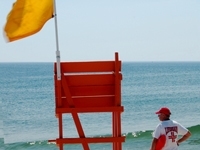Splash pages can be life savers

by Katharyn Wheeler
Congregations often decide to give access to wi-fi as a service to their community. While this can be of great benefit to the users, it also has the potential of opening the congregation up to liability for whatever content users choose to access.
The synod would like for every congregation to have a policy in place for computer and internet use. Consider the splash page.

Use of a splash page or splash screen is one consideration for protection of computer use in congregations – kind of like a “trained lifeguard.”
What is a “splash page” or “splash screen?” This is the opening page or pop-up screen that users see and must acknowledge before going to the main content of the website or connection. Whether someone clicks an “x” or an “accept” button, it is clear the user has seen it.
Splash pages may take multiple forms, like advertising or identifying software needed to view a page, or they can explain terms of use. If your congregation is allowing access to wi-fi, it is important, and possibly a requirement of your insurance, to clearly identify an acceptable use policy to protect the congregation.
A splash page can act as a gatekeeper to your wi-fi which will only open after acknowledgement of the acceptable use terms and agreements of your organization. This takes the responsibility for the content that is accessed off the congregation and places it on the individual.
Use of a splash page or splash screen is only one level of protection in computer use in congregations. Other levels of protection in computer use in congregations should be considered in addition. The ELCA has a sample Computer and Internet Use Policy, which can be found at www.elca.org/About/Churchwide/Office-of-the-Secretary/Legal-Issues/Sample-Policies. It is a good place to start with creating your own policies.
You should also consult your insurance company both for any resources they can offer but also for any requirements they have.
Consider the splash page as a trained life guard, a potential life saver, when practicing congregational internet safety.



